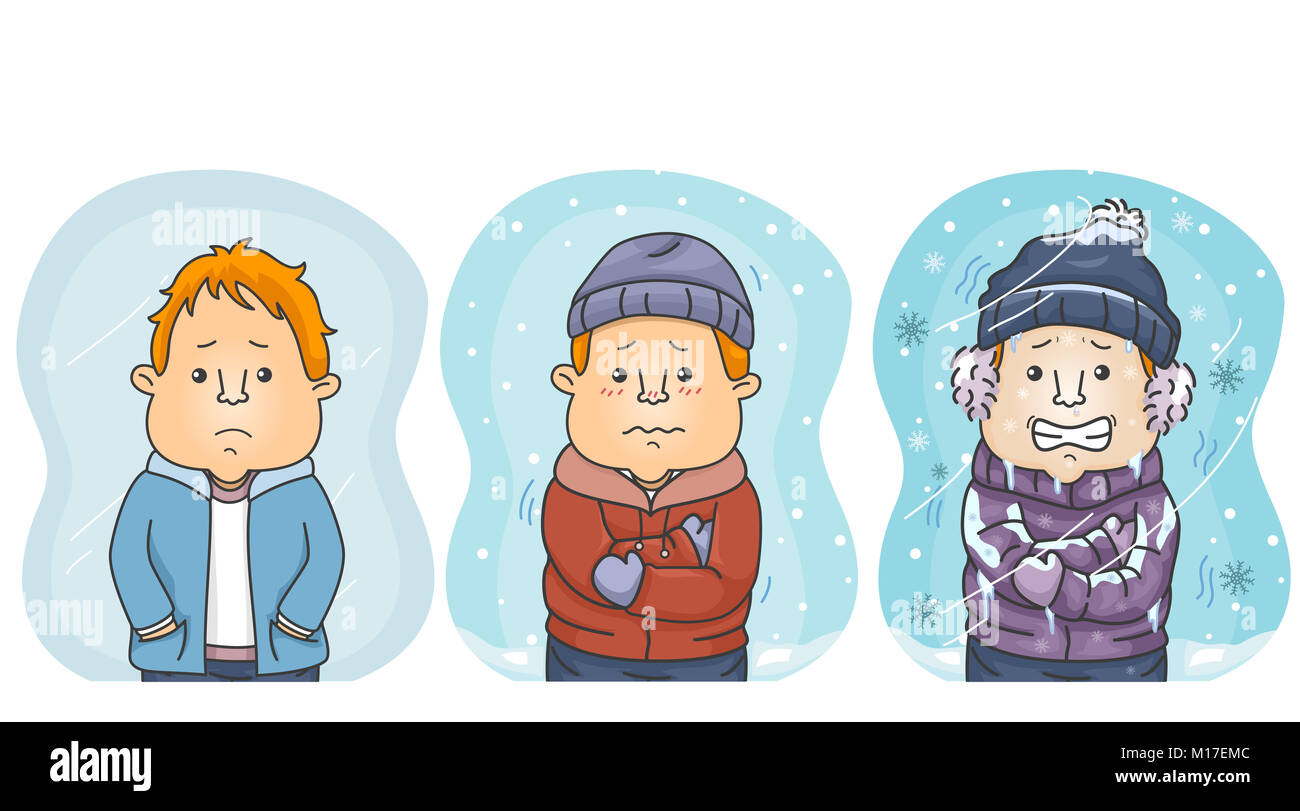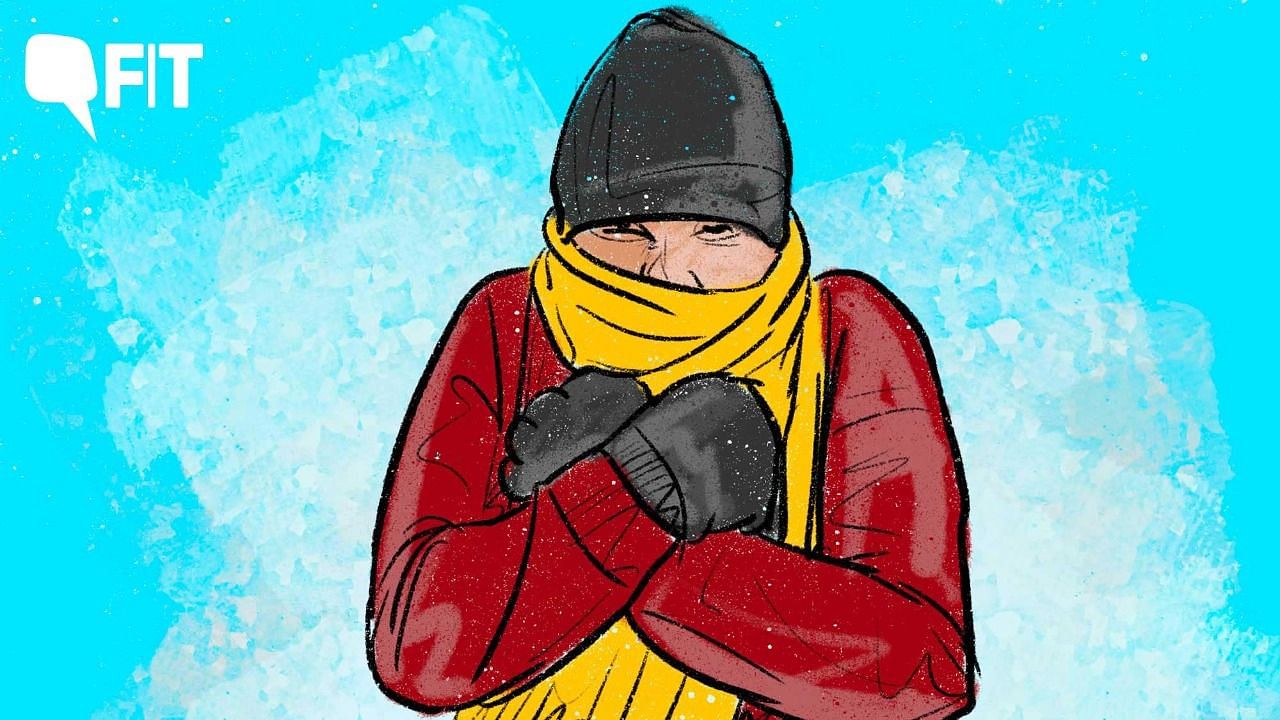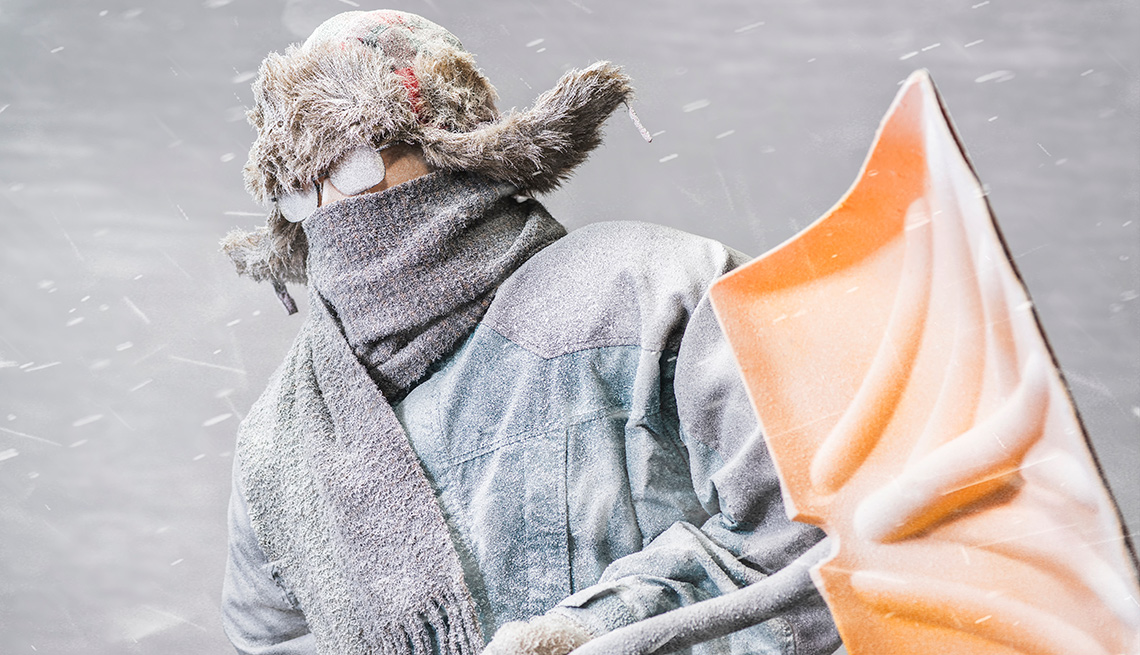Colder Than A Witches In A Brass Bra Origin - What It Really Means
When the air gets a bit nippy, and the shivers really start to set in, people often reach for words that paint a vivid picture of just how chilly things have become. There are, you know, some expressions that just hit different, truly capturing that bone-deep feeling of coldness. These phrases often use colorful imagery to make sure you really get the point, helping to convey a sensation that can be pretty tough to put into simple words. It's almost like a shared understanding of what extreme cold feels like, communicated through a quick, memorable turn of phrase.
One such saying that pops up to describe truly frigid conditions is "colder than a witches in a brass bra." It's a phrase that, basically, makes you feel a chill just hearing it, doesn't it? The imagery it brings to mind is, well, pretty striking, suggesting a level of cold that goes beyond just needing an extra jumper. It implies a kind of cold that feels, you know, almost impossibly sharp, something that really makes you pull your shoulders in tight.
This particular expression, while maybe a bit quirky, does a good job of getting across an intense feeling of coldness. We often use language like this to describe things that are, in some respects, quite hard to pin down with plain adjectives alone. This piece is going to look at what "cold" and "colder" really mean, drawing from some basic descriptions, and then, you know, we'll connect those meanings to why a phrase like "colder than a witches in a brass bra" works so well to describe a truly biting chill.
- Unveiling The Charisma Of John Stamos Young
- Was The Shah Of Iran A Good Leader
- Dafina Miftari
- Neuro Gum Net Worth
- Aishah Sofey New Leaked
Table of Contents
- What Does 'Cold' Truly Mean Anyway?
- Is Being 'Chilled' Just a Feeling?
- How Does 'Colder' Compare?
- When Temperatures Dip Below Normal - The Colder Than a Witches in a Brass Bra Origin
- Why Do We Use Such Vivid Language to Describe Temperature?
- Exploring the Impact of 'Colder Than a Witches in a Brass Bra Origin'
- Could Extreme Cold Affect Performance, Like a Slump in Shooting?
What Does 'Cold' Truly Mean Anyway?
When we talk about something being "cold," what are we, you know, actually trying to convey? At its most basic, cold describes a temperature that just feels, well, uncomfortably low for us humans. It's that sensation when the air around you isn't quite warm enough, leaving you feeling a little bit shivery. This can mean the air itself is at a low temperature, or maybe an object you touch just feels, you know, really cool to the touch. It’s that general sense of not having enough warmth around you, which can be pretty noticeable.
Sometimes, this feeling of coldness can be more than just a slight chill; it can be quite intense. It's the opposite of feeling cozy and warm, really. You know, it's that state where your body might start to react, perhaps by giving you goosebumps or making your teeth chatter just a little. The definition often points to something having a relatively low temperature, a state that's, you know, quite distinct from warmth. It’s a very common experience for everyone, basically, and we all understand what it means to feel that particular sensation.
The concept of cold also extends beyond just the air around us. It can describe a state where something is chilled, like when you pull a drink from the fridge. Or, you know, in a medical sense, it might refer to a body temperature that’s lower than what’s considered normal or expected. So, it's not just about the weather outside; it's a condition that can apply to many different things, basically, always pointing to that lack of heat. This versatility in meaning is, in a way, what makes the word "cold" so useful in our everyday chats.
- Bomb Iran Vince Vance
- Timothy Olyphant A Multifaceted Talent In Hollywood
- Baggiest Jeans In Atlanta
- Mysterious Skin Bathroom
- Christopher Walken Net Worth
Is Being 'Chilled' Just a Feeling?
When someone says, "I'm really cold today," they are, you know, clearly talking about a physical sensation. It's that feeling of discomfort that washes over you when your surroundings just aren't warm enough. This isn't just an idea; it’s a direct experience, a bodily response to a lack of heat. You might find yourself wanting to bundle up, or perhaps move around a bit to generate some warmth, because, you know, that chill can really settle in.
This sensation of coldness can, in some respects, range from a slight coolness to a feeling that’s truly uncomfortable, maybe even to the point of pain. It’s that internal signal your body sends when its core temperature is, you know, starting to drop, or when exposed skin is losing heat too quickly. It’s a very personal experience, really, and what one person considers a bit chilly, another might find absolutely freezing. So, it's not just about the numbers on a thermometer; it's about how your body perceives and reacts to those lower temperatures.
For example, a cold can also be a condition, a pathology where your body has a temperature lower than what is normal or usual. This shows that "cold" isn't just a simple descriptor; it's a word with, you know, various layers of meaning depending on the situation. Whether it's the feeling of your fingers getting numb outdoors or a medical state, the core idea is still that lack of warmth. It’s a concept that’s pretty deeply woven into how we describe our physical experiences, basically.
How Does 'Colder' Compare?
Now, if "cold" means a temperature that's uncomfortably low, then "colder" takes that idea and, you know, pushes it a step further. "Colder" is the way we talk about something being even less warm than something else. It's a comparative term, basically, used to point out a lower temperature when you're looking at two different things or situations. It means that whatever you're describing is, you know, significantly lower in temperature, often to a point where it really starts to cause a noticeable impact.
When we say something is "colder," we're usually implying that the drop in temperature is quite pronounced. It's not just a little bit less warm; it's, you know, noticeably more frigid. This could mean a shift from merely cool to genuinely biting, or from uncomfortable to, perhaps, a bit painful. It’s that sense of a deeper, more penetrating chill that really makes itself known. So, it’s a word we use when we want to emphasize that the temperature has, in a way, really dropped.
This comparative form helps us, you know, grade the intensity of coldness. It allows us to say that one winter day is more severe than another, or that a certain drink is more refreshing because it’s, you know, much more chilled. It points to a state that’s not just low in temperature but, you know, markedly so, often causing a stronger sensation or effect. It’s a useful word for, basically, highlighting differences in how we experience or measure coldness.
When Temperatures Dip Below Normal - The Colder Than a Witches in a Brass Bra Origin
When we get to a phrase like "colder than a witches in a brass bra," we are, you know, really talking about an extreme level of cold. This expression takes the idea of "colder" and amplifies it significantly, using a vivid image to convey just how biting the temperature truly is. It's not about a slight chill; it's about a temperature that feels, you know, far below what's normal or comfortable for most people. The phrase itself works to create a mental picture of something that simply cannot hold any warmth, basically.
The "brass bra" part of the phrase, you know, plays a pretty big role in its impact. Brass, being a metal, conducts heat away very quickly. If you touch something made of brass when it’s cold, it feels, you know, much colder than something like wood or fabric at the same temperature. This is because the metal pulls heat from your skin rapidly, making the sensation of coldness much more intense. So, a brass bra would, in a way, feel incredibly cold against the skin, especially in a chilly environment.
Then there's the "witch's" part. While not literally referring to a person, it adds a layer of, you know, almost supernatural chill, a sense of something that is inherently unfeeling or devoid of warmth. It combines with the physical properties of the brass to paint a picture of an almost, you know, impossible level of coldness. This phrase, therefore, doesn't just describe a low temperature; it evokes a feeling of absolute, unrelenting frigidity, a kind of cold that just, basically, cuts right through you. It's about communicating an experience, rather than just a number.
Why Do We Use Such Vivid Language to Describe Temperature?
People often turn to really colorful language when trying to describe something as, you know, universally felt as temperature. Simple words like "cold" or "hot" can only go so far. To truly convey the intensity of a freezing day or a scorching afternoon, we often need phrases that, basically, create a stronger mental image. This is because our experience of temperature is not just a scientific measurement; it's a very sensory and emotional one, you know?
Using vivid comparisons, like "colder than a witches in a brass bra," helps us, in some respects, tap into a shared understanding of sensations. Even if you haven't literally touched a witch's brass bra, the elements of the phrase – the coldness associated with metal, the lack of warmth implied by the "witch" – combine to paint a picture that, you know, resonates. It’s a way of saying, "This isn't just cold; this is a whole different level of cold," in a way that plain words just can't quite capture.
These kinds of expressions also add a bit of personality and humor to our conversations. They make our descriptions more memorable and, you know, more impactful. They allow us to communicate nuances of feeling that might otherwise be lost. So, it's not just about being dramatic; it's about being effective in how we convey our experiences, basically, especially when those experiences are as physical as feeling a deep chill. It's a very human way of, you know, sharing what we sense.
Exploring the Impact of 'Colder Than a Witches in a Brass Bra Origin'
The impact of a phrase like "colder than a witches in a brass bra" comes from its ability to, you know, immediately conjure up an image of extreme discomfort due to cold. It’s a powerful way to express just how low the temperature feels. When you hear it, you don't just think "cold"; you think, you know, "bone-chilling," "unbearable," or "absolutely freezing." This is because the components of the phrase work together to amplify the sensation of coldness beyond simple description.
The phrase takes the general idea of "colder" – which is already a comparative that suggests a significant drop in temperature – and, basically, grounds it in something that sounds utterly devoid of warmth. The brass, as we've talked about, is a material that feels cold because it draws heat away quickly. The idea of a "witch" adds a sort of, you know, stark, unfeeling quality to the image. Together, they create a sensory picture that is, in a way, more potent than just saying "very cold."
This kind of language helps us to, you know, truly connect with the experience being described. It allows for a shared understanding of what it means when the temperature dips to an extreme degree. It’s a phrase that, basically, sticks with you, making it clear that the cold is not just present but, you know, overwhelmingly so. It’s a testament to how creative and descriptive our language can be when we really want to express a strong feeling, basically.
Could Extreme Cold Affect Performance, Like a Slump in Shooting?
It's interesting to consider how cold, especially extreme cold, can actually influence how we perform, whether it's, you know, in everyday tasks or even in competitive activities. The provided text mentions a "slump of cold shooting" in sports. This, basically, highlights how a physical state of coldness can translate into a noticeable drop in ability or effectiveness. When your body is cold, your muscles might stiffen, your dexterity could decrease, and your overall focus might, you know, just not be as sharp.
Think about trying to play a sport or, you know, even just type on a keyboard when your hands are really chilled. It becomes much harder to do things precisely. The sensation of coldness, especially to the point of discomfort, can be a real distraction, taking away from your ability to concentrate on the task at hand. So, a team falling into a "slump of cold shooting" suggests that the cold environment or perhaps even the coldness within the players themselves, you know, really hindered their usual performance. It's a very real impact.
This connection between cold and performance shows that the concept of "cold" isn't just about a number on a thermometer. It's about a condition that has, you know, tangible effects on living things and their capabilities. Just as a person feels the discomfort of "colder than a witches in a brass bra" temperatures, that same kind of extreme cold can, basically, lead to a decline in physical prowess or mental sharpness. It’s a reminder that temperature, you know, really matters in how we function, in some respects.
- Two Babies One Fox X
- Froot Cheating
- Squirrel Girl Punk Skin
- Emily Compagno Husband
- Lol Superman Explained

Illustration Featuring Three Men Showing the Difference Between Cold

Cold Intolerance: Why Do Some People Feel Colder Than Others? Is It a

Colder Than Normal Winter Weather Season Predicted